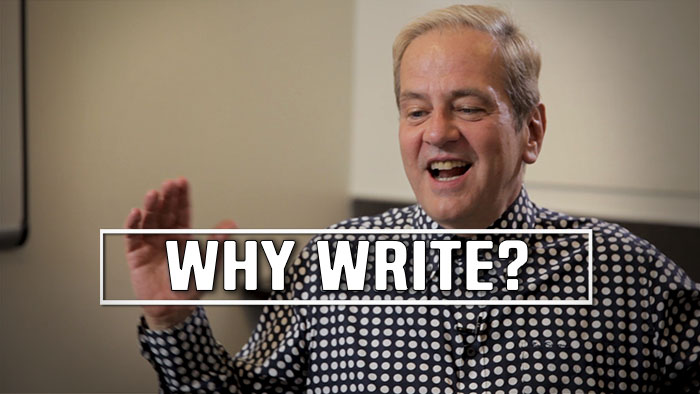
Watch the video interview on Youtube here
Film Courage: So you say that the B.M.O.C., the B stands for one time marker, M another, O another and on.
Peter Russell, screenwriter and script doctor: Yes, 30, 60, 90, 110 page in a script (a movie script).
Film Courage: Okay to play the Devil’s Advocate here we sometimes see these comments (usually they come in late at night) which are “This is why Hollywood writes formulaic crap.”
Peter: Yes!
Film Courage: How do we contend that? How do we say “Well, maybe Hollywood is not for you.” But what would be your answer to someone?
Peter: Take a show that I would think would be the new Robert Altman who is a guy named [Donald] Glover. He’s a guy that is writing a show right now that is called ATLANTA. Now ATLANTA is now the hippest half-hour show on television. Glover is an African American dude. He’s been an actor in several big shows but now he’s got his own show. This guy gives us a world that we’ve never seen before which is the world of middle…kind of lower middle-class African American Atlanta. Now Atlanta is a cool city. And there is a big African American culture that is part of Atlanta. I would say say to you, you probably don’t know too much about that world, right?
Film Courage: I don’t.

Watch the video interview on Youtube here
Peter: I certainly don’t either. He shows you and that’s one of the great things there are nine questions that I ask you when I’m working on a television show. And one of them is “Are you showing me a world I haven’t seen before, because I don’t want to see New York again on the Upper East Side? Please!” Right? Show me a new world.
So this is the world of middle and lower middle-class Atlanta and it’s very (African American Atlanta) and it’s very specific and the story feels very loose. And if you go and look at the pilot of Atlanta and it doesn’t look like it’s about much, it’s sort of like a Robert Altman movie. It’s got a very loose feel to it. It feels very improvisational. It feels like there are no rules at all in this story.
It’s got every rules, every structure, every storyline every rhythm of HOW I MET YOUR MOTHER, the most commercial, sit-comey structure that you’d ever want or you’d ever not want or if you’re a hipster you’d say “I don’t want to write that, right?” It follows all the rules, so why is it so cool. Because it takes those rules and it shows you stuff you’ve never seen.
The reason people say “Ahhh! Hollywood is so formulaic is because they are looking at band, unimaginative stories with characters you’ve seen a thousand times, which situations you’ve been in a thousands times, in a world you’ve seen a thousand times.
But the structure (the commercial structure) is there because it’s beautiful, the bones are beautiful. You can take other bones out, put other bones in, but there’s an appeal below the surface of beauty. If you look at what we consider beauty if you took a skeleton, you’d see that there is a conformity to the bones. Now you can put whatever you want on that bone structure. You can make the person Tunisian, you can make them Indian, you can make them American Indian, you can make them whatever you want. But the bones below that determine whether or not they are beautiful.
I think structure of story is like the bones beneath the face. It’s what we’re instructively drawn to as human beings and that doesn’t change. But what changes, what makes things unique is are these characters we haven’t seen before. Is this guy have a wound we have’t seen before?

Watch the video interview on Youtube here
Glover (in Atlanta) gives us a guy (a real smart guy) who went to Princeton but he failed because he’s got a core wound that he’s a loser. And he’s come back, he’s just bumping around and hanging out in this middle-class (lower middle-class) world of African American Atlanta, but he’s a loser. He left Princeton probably because he felt like these people aren’t like me (which I felt. I went to an Ivy League school and I felt the same thing) and because I’m a loser I’m going to drop out and I’m going to go back home.
Now back in Atlanta he gets involved with his cousin who is a hip hop artist (who he shouldn’t get involved with). He also already has a baby (Glover does) and he’s not being a really good father but he’s trying. He’s not being a good father, he’s not being a good husband at all. So all the things, all of the elements that we’ve seen from a dozen sitcoms 1960 on, are all present in Atlanta. But because we’ve never seen this world before. So he’s kind of a slacker (an African American slacker) and it’s also very funny. So every commercial cliché of structure is in this story and yet it’s the freshest thing on television.
And so that’s my argument against not using structure. Think of it this way, in California we have these vanity license plates, right? And in a vanity license plate I think you get even letters and in that seven letters and in that seven letters you’ve got to be witty. You can’t go “Oh man you know what it’s so cliché to have seven letters. My vanity plate is going to have 32. Because if you make the vanity plate 32 characters long, it’s not going to be funny if you have a seven letter word that says, let’s say you’re driving a Corvette and your seven letters are “2 Inches.” Right? That’s funny.
Film Courage: Yes. Got me to laugh.
Peter: If it was a 42 letter plate plate it would go “Hey, I drive a Vette because I have a small pen*s.” Is that funny? No!
No, not as much. The form is too big. So commercial form is what we delight in. The limitations of commercial form produce the entertainment, right? The fact that it’s a half hour means you must cram certain things in it. And the delight of the audience in a commercial art form is How are they going to cram something we’ve never heard about and is witty into this limited commercial form. That’s what commercial art does. That’s why it’s commercial art. If you want to make a sitcom that doesn’t follow the rules, great. Make one that is four hours long. You can do it but it’s not commercial art and your audience will probably be very limited unless you are such a super genius you are going to create a new art form (that’s what Suzy is going to do). Please God, let’s see it from you but you are going to have to be greater than Shakespeare who buy the way used a three-act structure, okay? Shakespeare worked inside a commercial structure, the structure of Stratford on Avon. He worked inside that structure. His plays were inside a commercial structure and yet they are the greatest plays in history. So you can be original and be commercial, too. That’s my seductive message for the whorish Hollywood that there is a Hollywood pimp telling you “C’mon baby. Get into the Seraglio. Do it our way. You can still be original.”
Question For The Viewers: Do you agree?
MORE VIDEOS WITH PETER RUSSELL
https://bit.ly/1SXtU22
WATCH PETER RUSSELL’S ANALYSIS OF MR. ROBOT
https://www.youtube.com/watch?v=JY1Dl5ELSPg
MORE BREAKING BAD ANALYSIS
https://bit.ly/2elfcYj
CONNECT WITH PETER RUSSELL

























